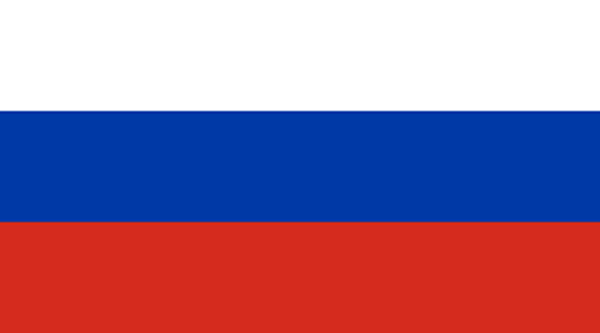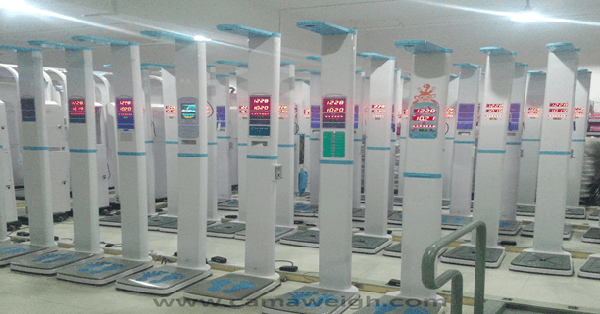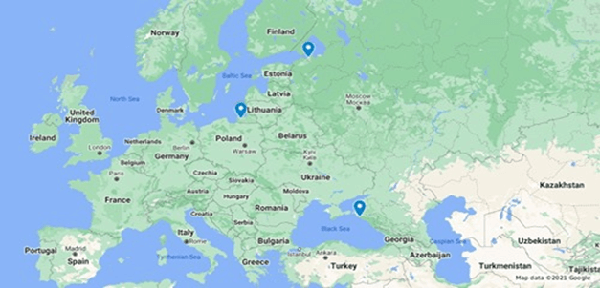
Introduction to Russia
- Russia has a population of 146 million people.
- Capital: Moscow
- Official Language: Russian
- Total Area: 17, 125,191 km2.
- Currency: Russian ruble (RUB)
Economic Statistics of Russia
Economic Overview:
- Russia is a transcontinental country spanning Eastern Europe and Northern Asia.
- Russia has a GDP of USD 1.46 trillion.
- Russia's largest industries: Mining, oil and gas, aerospace production, electrical engineering, Pharmaceuticals, Fuel and energy, military machinery, automotive and parts industry, transport, road, chemicals and petrochemicals, metal, textile, agriculture, and food processing industries.
Economy breakdown:
- Services 62%
- Industry 32%
- Agriculture 5%.
Main Import partners:
- China: 22%
- Germany: 13%
- United States: 6%.
- Belarus: 7%
- Italy: 5%
- Japan: 4%
Main Export Partners
- China: 15%
- Netherlands: 7.%
- United Kingdom: 7%
- Germany: 6%
- Belarus: 5%
- Turkey: 5%
The Manufacturing Industry in Russia
The Manufacturing Industry contributes to Russia's economic growth yearly by at least 13 % in GDP.
Due to good government policies that support innovation, the expansion of Russia's manufacturing industry embraces new technology, research, development, expansion of industries, urbanization, and shaped educational systems that produce a highly-skilled workforce.
The manufacturing industry has contributed to Russia's economy by creating more jobs, promoting small and medium manufacturing industries, and increasing wages and salaries.
In terms of trading, this sector uses a range of goods such as petroleum and petroleum products, metals, natural gas, chemicals and petrochemicals, and pharmaceuticals.
Russia imports vehicles, pharmaceuticals, plastics, semi-finished metal products, agricultural produce, iron, and steel.
Some of the largest manufacturing Sub-sectors in Russia include:
- Oil and gas Industry: Russia is the third-largest producer of oil worldwide. It contributes to about 12% of the total global crude oil production. It has the largest coal oil reserves, as well as the third-largest energy consumer in the world.
- Aircraft Industry: Russia's aircraft manufacturing industry employs an estimated 355 thousand people. The industry produces a wide range of internationally competitive military aircrafts such as supersonic MiG- 29, Su-27, and Superjets.
- The pharmaceuticals industry: In 2016, Russia's pharmaceutical industry had a turnover sales of USD 16.5 billion. The industry continues to grow with the increasing digitalization of its healthcare systems, such as online drug stores, electronic documentation of patient records and prescriptions.
Russia produces an estimated 11 million barrels of oil per day, and the industry is responsible for over 60% of Russia's total exports. It contributes to about 30% of the country's GDP.
Some of the weighing equipment that Camaweigh trade include:
Russia's aircraft industry is one of the fastest-growing industries, and one of the most science-intensive hi-tech sectors, providing itself as the backbone of the county's economy.
This industry uses weighing equipment for accuracy and consistency to ensure safety.
The pharmaceutical industry in Russia contributes about 1.3% in GDP and up to 20% of the total health spending.
As the sector continues to grow, the demand for special weighing equipment continues to rise. Some of the weighing equipment that the sector uses are:

- BMI Scales are medical scales. BMI stands for Body Mass Index, which is measuring a person's body fat based on their weight and height.
The Transportation and Logistic Industry in Russia
Given Russia's economic growth, the demand for weighing scales in Russia's transportation and logistics services is diverse and expected to grow.
In 2030, Russia's logistics sector is expected to expand due to innovations, infrastructural development, technological advancement, and good government policies.
Weighing scales are used in the transportation and logistics industry to measure the weights of goods accurately to ensure safety during transportation.
Types of Weighing System Used in Transportation and Logistic Industry:
These weighing scales are applied to many industries, such as shipping, construction, agriculture, logistics, and vehicle.
- Traffic Lights and Displays Scales
- Weighbridge
- Junction Boxes
- Crane Scales
- Thermal Printers
- Pallet Truck Scales.
- NFC Cards
- Intelligent system
Sea Ports and Trading Hubs of Russia
Russia is accessible by both land and sea.
For international trading, Russia's main seaport includes the port of St. Petersburg, the port of Novorossiysk, the port of Kaliningrad, and the port of Murmansk.
When exporting products to our clients in Russia, Camaweigh uses Russia's main seaport of Novorossiysk, which handles about 20% of the total volume and exports.

What Weighing Scales does Russia Import?
According to the latest trade data, some of the leading weighing scales that Russia import include:
- High Precision weights.
- Hydraulic lifts
- Logistic Scales
- Single Arm Barrier
- Folding Barrier
- Test Weights
- Fence Gate Barrier
- LPG Filling
- Airport Scales.
- Indicators.
What Regulations are there on Importing Equipment to Russia?
The government of Russia requires all importers to follow the set guidelines, which help Russia regulate the importation of goods. Below are some of the documents that must be presented to the customs authorities.
Federal Customs Service (FCS) is Russia's custom body, established under the Ministry of Economic Development and Trade's authority.
Federal Customs Service is required to implement to ensure all importers and exporters adhere to the set regulations and further overseas custom tax collection.
- Commercial invoice
- Packing list of the product.
- Information about the quality of the products
- Commercial agreement
- Certificate of Origin
- Import and export license for specific goods.
- Certificate of conformity.
- Sanitary certificate.
- Transport documentation.
- Insurance certificate.
- Bill of landing.
- Tax compliance certificate.
- Certificate of weight and volume
Camaweigh will make sure to handle all logistic and document processes for your company and our worldwide clients.
Why Should Russia Import Equipment?
- Availability – Customers require equipment to be delivered promptly, and local industries do not have the capacity for timely delivery of goods in bulk load.
- The high cost of equipment – Apart from matters quality, locally manufactured equipment is overpriced, paving the way for imports.
- Quality of equipment - The quality of imported equipment is higher compared to the locally manufactured equipment.
Where Can I Buy Equipment for Russia?
Camaweigh has been exporting a wide range of weighing equipment to clients in Russia. Feel free to contact us at [email protected] or WhatsApp us at +86-131-2037-9271 for a FREE quotation.
We also ship worldwide; for other countries, check out our experience here.


 French
French Spanish
Spanish